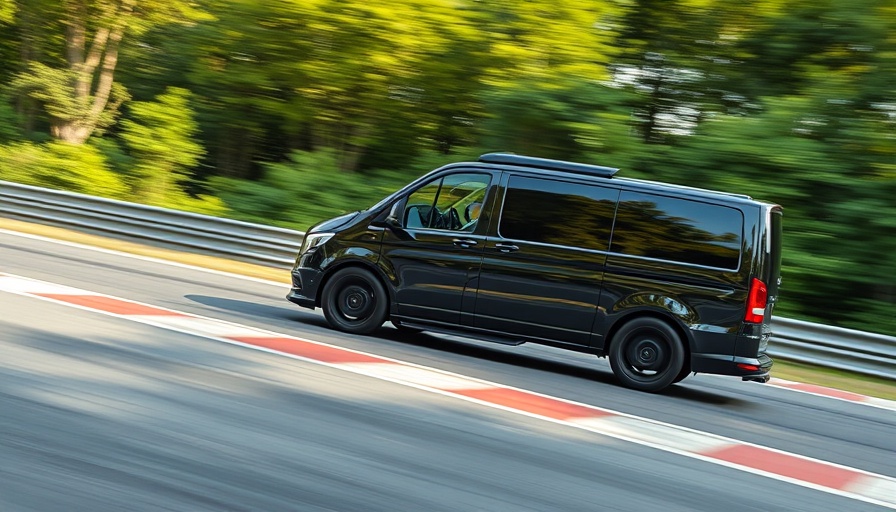
Challenging Norms at the Nürburgring
The Nürburgring Nordschleife, often referred to as the "Green Hell," is not just a legendary racetrack; it's a proving ground for automotive manufacturers and enthusiasts alike. Recently, it became the stage for an unexpected achievement—a diesel Volkswagen set a record for the fastest lap for a van. This remarkable feat challenges preconceived notions about performance vehicles and their capabilities, particularly in a segment often overshadowed by sportier cars.
Introducing the Record-Breaking Ride
The record-breaking van, a Volkswagen Transporter, completed the infamous 20.8 kilometers of twisting turns and elevation changes at the Nürburgring in a stunning time of 10 minutes 42 seconds. This achievement not only highlights the Transporter's surprising agility but also showcases advancements in diesel technology that have allowed such vehicles to compete in areas traditionally dominated by high-performance gasoline engines.
Why Diesel, and Why Now?
Diesel engines are often criticized for their emissions and perceived sluggishness when compared to their gasoline counterparts. However, advancements in turbocharging and fuel efficiency have allowed modern diesel engines to achieve remarkable performance while maintaining better fuel economy. The record-breaking lap demonstrates that not only can a diesel engine deliver impressive torque, but it can also provide sufficient power for thrilling speed on a racetrack. This shift in perception opens up exciting possibilities for diesel enthusiasts and manufacturers looking to innovate.
The Tech Behind the Triumph
What makes this achievement even more fascinating is the technology that facilitated the Transporter's success. Modern advancements in automotive technology, such as improved aerodynamics, lightweight materials, and sophisticated suspension systems, have all contributed to this performance. The combination of these factors, along with the van's powerful diesel engine, led to a lap time that left many petrol-heads in awe.
The Future of Diesel and Automotive Innovation
This record is more than just a novelty; it’s reflective of a larger trend in the automotive industry toward embracing alternative fuel technologies that combine performance with efficiency. As manufacturers continue to refine diesel engines and explore hybrid or fully electric vehicles, innovations that prioritize speed, handling, and sustainability will shape the future of performance vehicles. The Nürburgring’s newest record could catalyst interest in diesel technology, encouraging brands to push the envelope further in this arena.
Join the Conversation
Whether you're a fan of traditional gasoline-powered performance cars or open to the potential of diesel technologies, this record sparks exciting discussions about the evolution of automotive engineering. As we see more records being broken and long-held beliefs challenged, it's an exhilarating time for enthusiasts and casual drivers alike. So, what do you think about this achievement? Dive into the comments and share your thoughts on the future of diesel performance!
 Add Row
Add Row  Add
Add 




 Add Row
Add Row  Add
Add 

Write A Comment